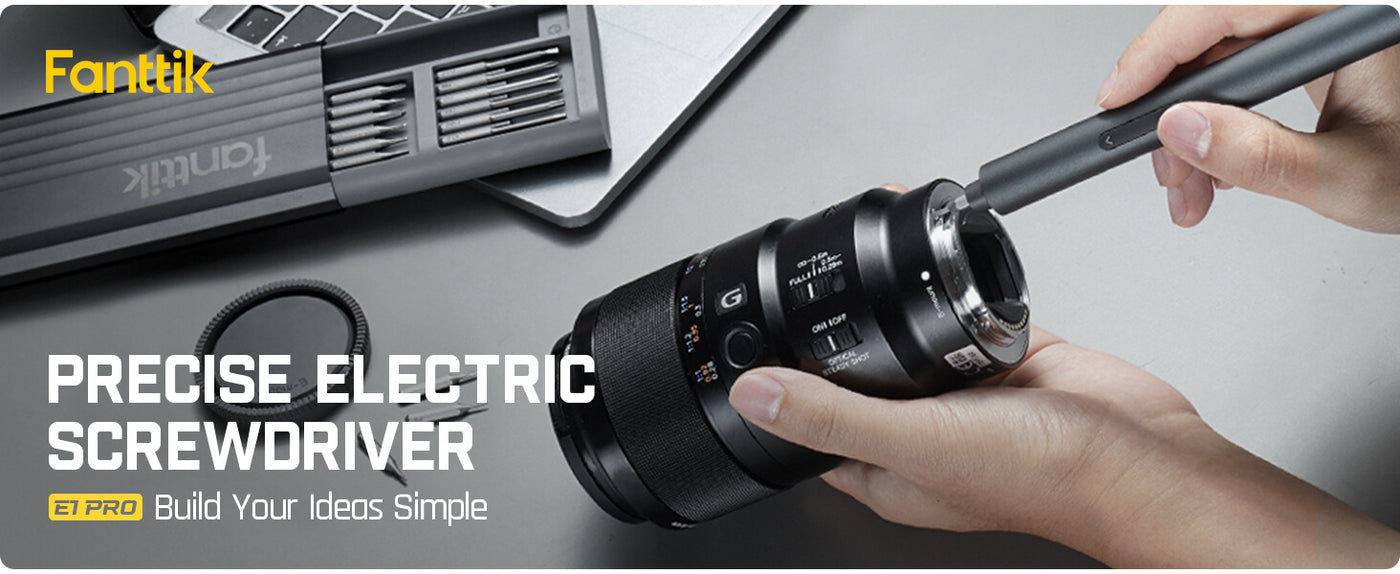Unlock the Secrets to Choosing the Perfect Precision Electric Screwdriver for Your Automotive Projects!
In the world of automotive projects, the right tools can make all the difference, and precision electric screwdrivers have become indispensable for both professionals and DIY enthusiasts. These tools not only enhance efficiency but also significantly improve the accuracy of your work, allowing you to tackle intricate tasks with ease. Imagine working on a complex assembly or disassembly and having the ability to adjust torque settings on the fly, minimizing the risk of stripping screws or damaging delicate components. The growing popularity of precision electric screwdrivers stems from their ability to provide a seamless blend of power and finesse, making them a must-have in any automotive toolkit.

Understanding Precision Electric Screwdrivers
Precision electric screwdrivers are specialized tools designed to deliver controlled torque and speed, distinguishing them from traditional manual screwdrivers. While a manual screwdriver requires physical effort and can lead to fatigue during extended use, precision electric screwdrivers operate with a motorized mechanism that automates the screwing process. This not only reduces the physical strain but also allows for more consistent results, which is crucial in automotive work where precision is key. These tools typically feature adjustable torque settings, enabling users to select the appropriate force needed for different screws and materials. This level of control is particularly beneficial when working on vehicles, where screws may be located in tight spaces or require a delicate touch.
Key Features to Consider
When choosing a precision electric screwdriver, several key features should be taken into account to ensure you select the best tool for your automotive needs. First and foremost, consider the torque settings; a screwdriver with adjustable torque allows you to tailor the power output to match the task at hand, preventing damage to the screws or surrounding materials. Battery life is another critical factor; you'll want a tool that can withstand long work sessions without needing frequent recharges. Weight and ergonomics are also essential, as a lightweight and well-balanced screwdriver will reduce fatigue during extended use, making your projects more manageable. Additionally, look for features such as LED lights for visibility in dark areas, interchangeable bits for versatility, and a comfortable grip for better handling.
Types of Precision Electric Screwdrivers
There are various types of precision electric screwdrivers available on the market, each with its own set of advantages and disadvantages, particularly when it comes to automotive work. Cordless electric screwdrivers offer the freedom of movement, allowing you to work in tight spaces without the hassle of cords getting in the way. However, they rely on battery power, which means you must monitor battery life closely. On the other hand, corded electric screwdrivers provide consistent power without the worry of battery depletion, but their restricted range can be a limitation in certain situations. Assessing your specific needs—such as the types of projects you typically undertake and the environments in which you work—will help determine the best type of screwdriver for you.
Comparing Options for Purchase
When it comes to purchasing a precision electric screwdriver, comparing different options can feel overwhelming due to the variety of models available. Start by looking at customer reviews, as they provide valuable insights into the tool's performance and reliability. Pay attention to the specifications that matter most to you, such as torque settings, battery life, and weight. Additionally, consider the warranty or return policy offered, as this can be a good indicator of the manufacturer's confidence in their product. To assess value for money, weigh the features against the price; a higher cost may be justified if the tool offers superior durability and performance. Lastly, do not hesitate to seek recommendations from friends or colleagues who have experience with precision electric screwdrivers, as personal anecdotes can often guide you to the right choice.
Choosing the Right Tool for Success
In conclusion, selecting the right precision electric screwdriver for your automotive projects is crucial for achieving the best results. By understanding the various features, types, and options available, you can make an informed decision that aligns with your specific needs and preferences. Whether you're a seasoned professional or a DIY enthusiast, investing in a quality precision electric screwdriver will not only enhance your efficiency but also elevate the quality of your work. So take the time to research, compare, and choose wisely—you'll be glad you did when tackling your next automotive challenge!








